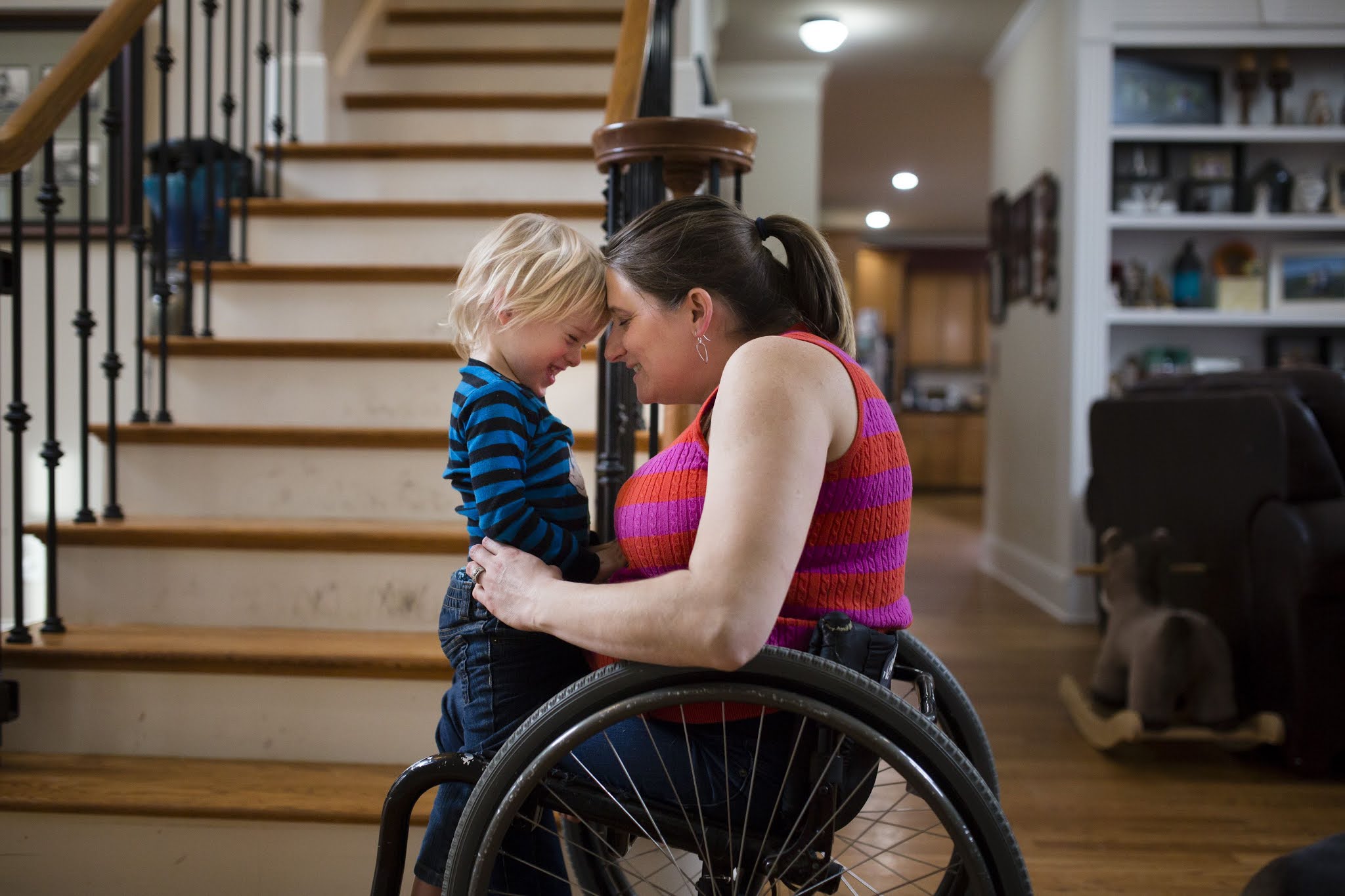Pregnancy is not a typical experience for most pregnant
women and can be difficult. It is even tougher when you are disabled. The lack
of resources, lack of support, and the discrimination that many disabled women
face in pregnancy, childbirth, and parenting makes it a unique experience.
With Disability Maternity Care's blog series "My Pregnancy Is Different from Other Women ... Because I'm Disabled", we hope to explore these differences as well as bring awareness to the specific needs that this population faces during pregnancy, childbirth, and parenting.
In this blog post:
- The challenges of living with a disability while pregnant
- How does disability affect your body while pregnant?
- Some tips on
1. The Challenges of living with a disability while pregnant
As a pregnant woman with disabilities, I face many challenges.
- The first challenge is getting to the hospital in time before my water breaks and labor starts on its own. If it does happen spontaneously then there is no use going because they will not let me deliver at home or anywhere really available, since that increases risk of infection for both baby and momma-to-be, so I'm just trying not to think about what might happen if all goes according to plan but even still, you never know how your body will react until you're actually expecting one!
- The second problem is figuring out where we'll stay while we're waiting around for our due date - either in some sterile medical ward or an unknown place far from friends who can help take care of the baby while I'm healing up.
- The third problem is how to get from one place without arousing suspicion or attracting attention - especially when some days my back hurts so much that it feels like someone's stabbing a knife in there and then other times, just everything tumbles out at once (like today!)
- The fourth thing: not being able make any decisions about anything for myself because all this powerlessness can really be draining sometimes... but luckily my husband always cheers me on!
2. How does disability affect your body while pregnant?
Pregnancy is a time when you're already feeling emotional and vulnerable. But if you have an illness or disability, the challenges can feel even greater - especially during labor. When focusing on caring for yourself as well as a growing baby's needs, it may not be so easy to maintain good nutrition levels which lead to low weight gain in pregnancy – this puts both mom and her unborn child at risk of health complications too early in life! Without sufficient treatment and support from their health providers throughout the pregnancy, many women with disabilities are less likely to have positive birth experiences.
What can you do? As a pregnant woman who has been in your shoes, I've found that focusing on the positives and giving myself time for self-care is essential during my pregnancy - even if it's difficult! Letting go of negative expectations will help put things more into perspective; which leads me back onto one important thing: staying healthy enough so both mommy AND baby stay happy :D It might be hard at first – but when we keep reminding ourselves what our bodies were made capable of doing...it builds up strength inside us too ;). Staying active (physically) was always encouraged by doctors as well!! You just got to let yourself enjoy being Pregnant.
3. Some tips to keep in mind during your pregnancy
- Find a support system (mama or not) that will listen when
you need it. It's important during those times where someone is there for us,
especially if they understand what we're going through. Having someone’s ear on hand can truly help make these
challenges more manageable ;). Plus, just knowing others are listening makes me feel less
lonely which also helps my mental health tremendously :)! And this goes back
onto how we encourage ourselves to stay active physically.
- Another tip for pregnant moms with disabilities is to try "on demand" breastfeeding. This means that when your little one needs a feed, they get it - there's no time limit or schedule of any kind attached ;). This method has really helped me so far and I'm happy about this blessing!
Note: You'll need someone around who can help hold the baby while feeding though.
- Finally the last tip for women with disabilities during pregnancy is to find a doula! They'll assist you with the challenges of pregnancy and labor. But there are also other options such as midwives, nurses or doctors who can help during this time. There's no shame in asking people to come into your life that will make it easier. Find health service provider wherever possible and don't forget about yourself either.


Comments
Post a Comment